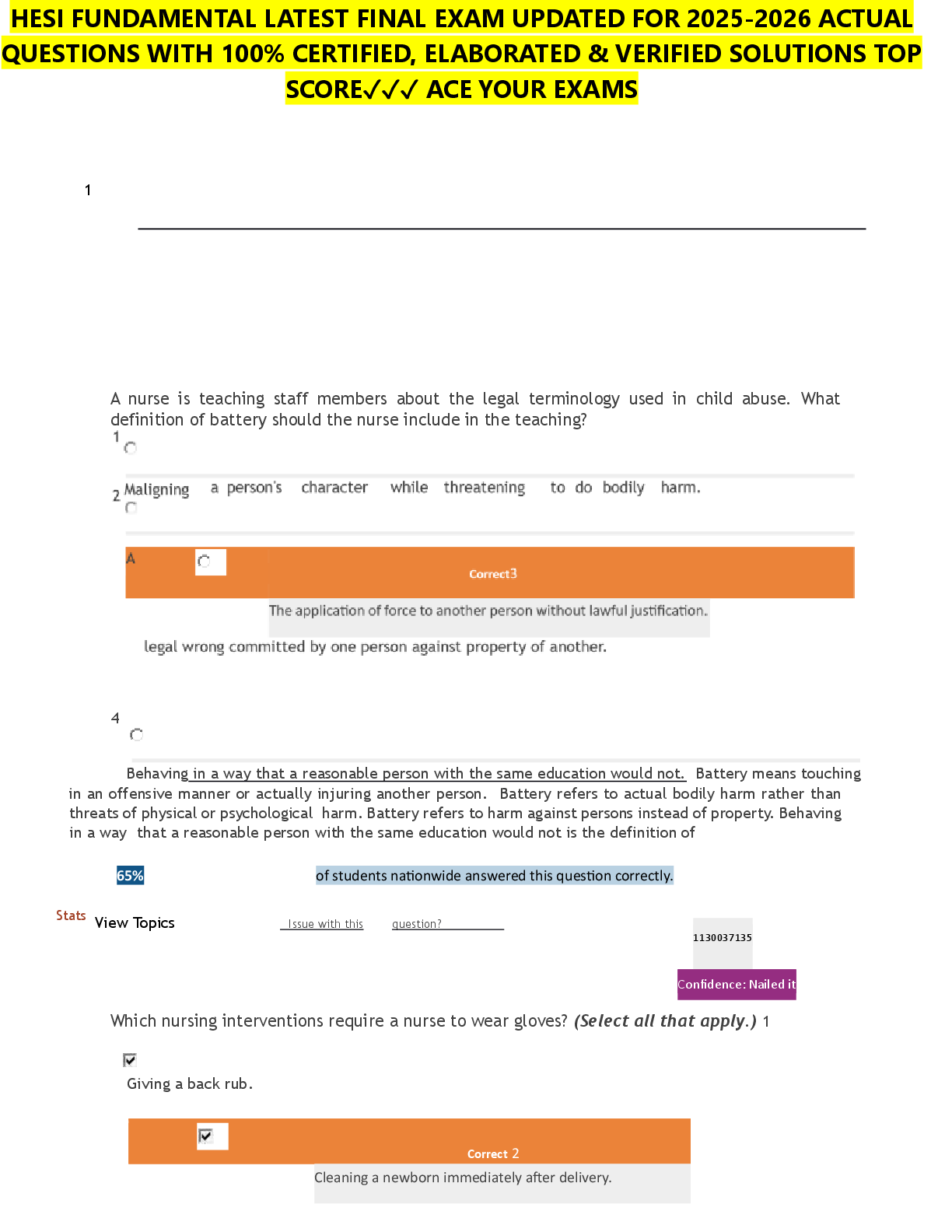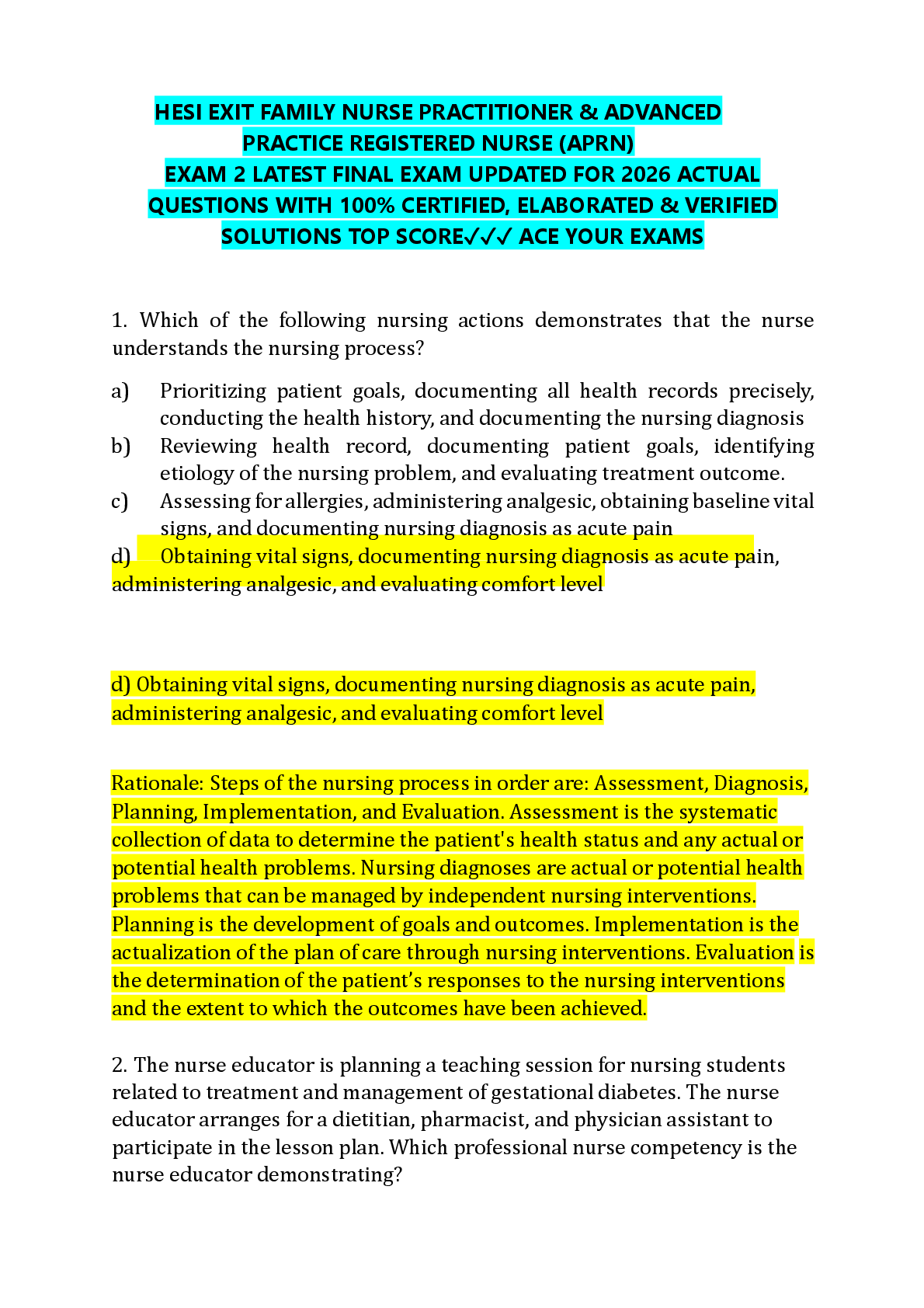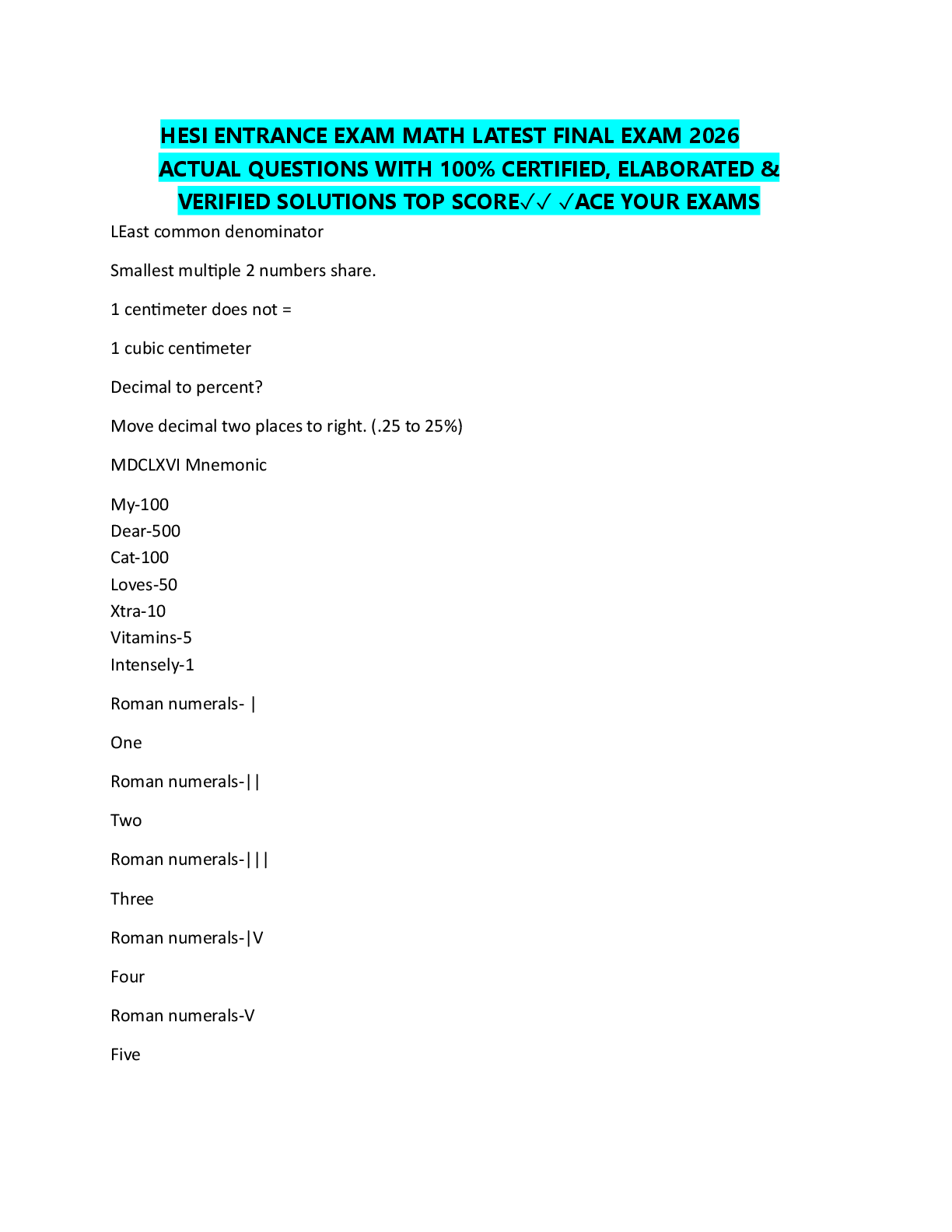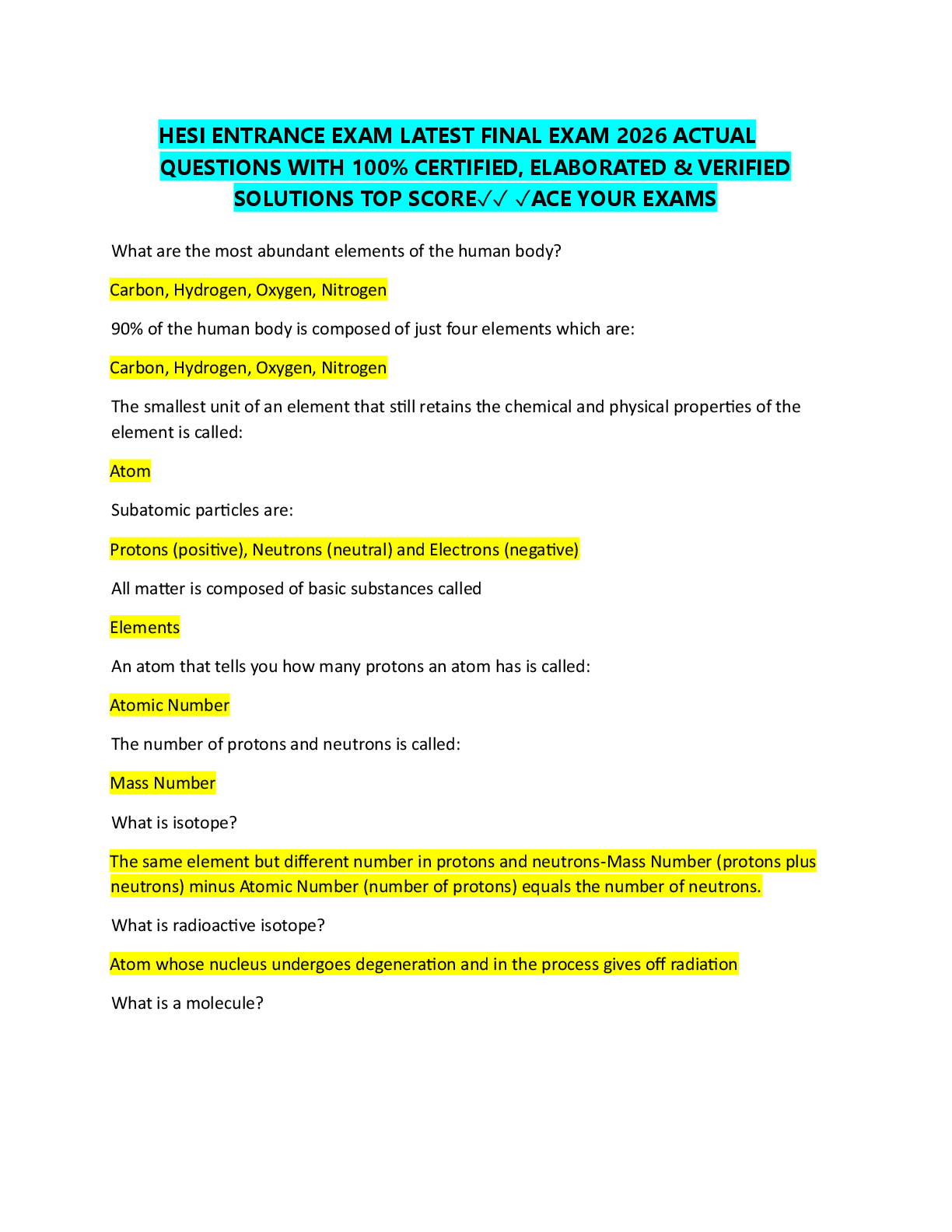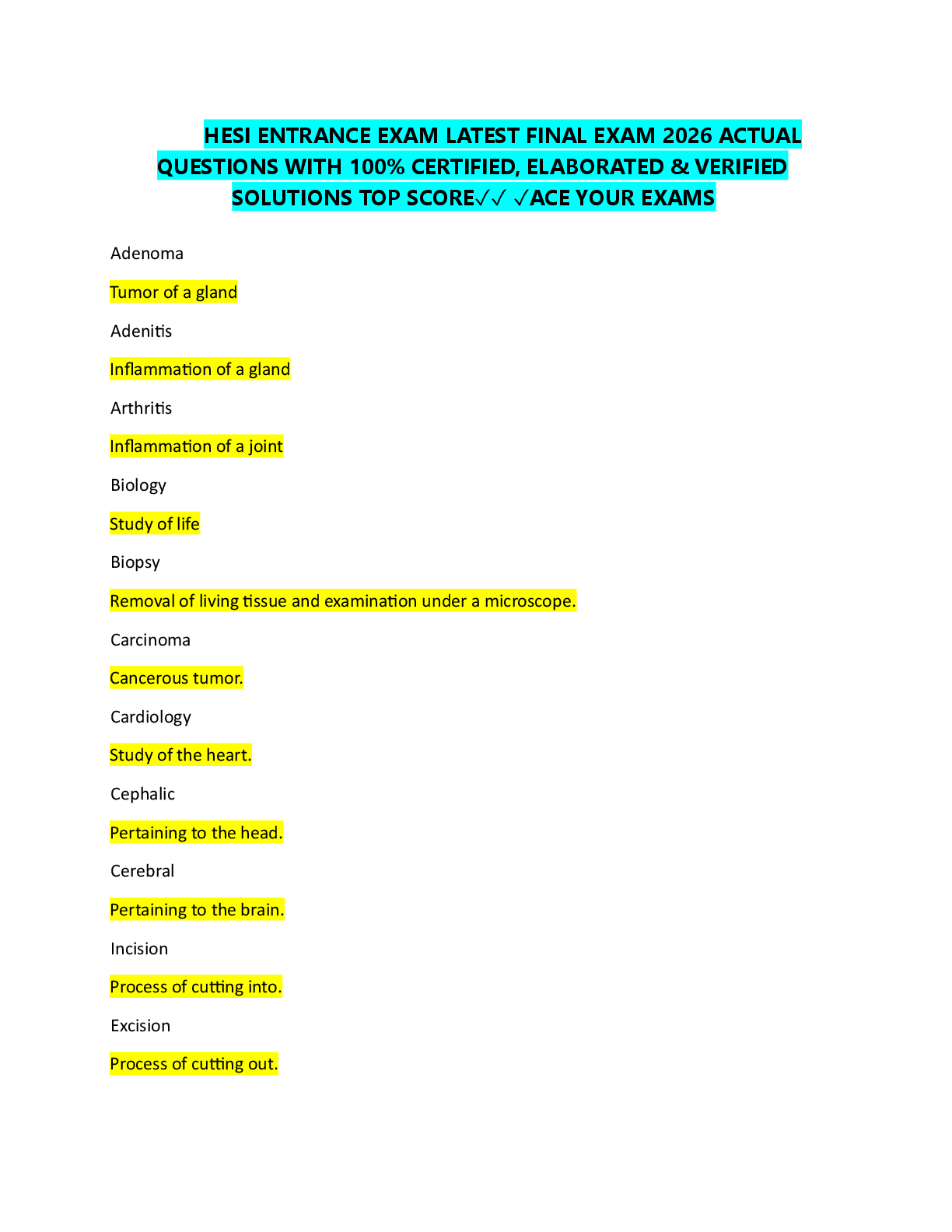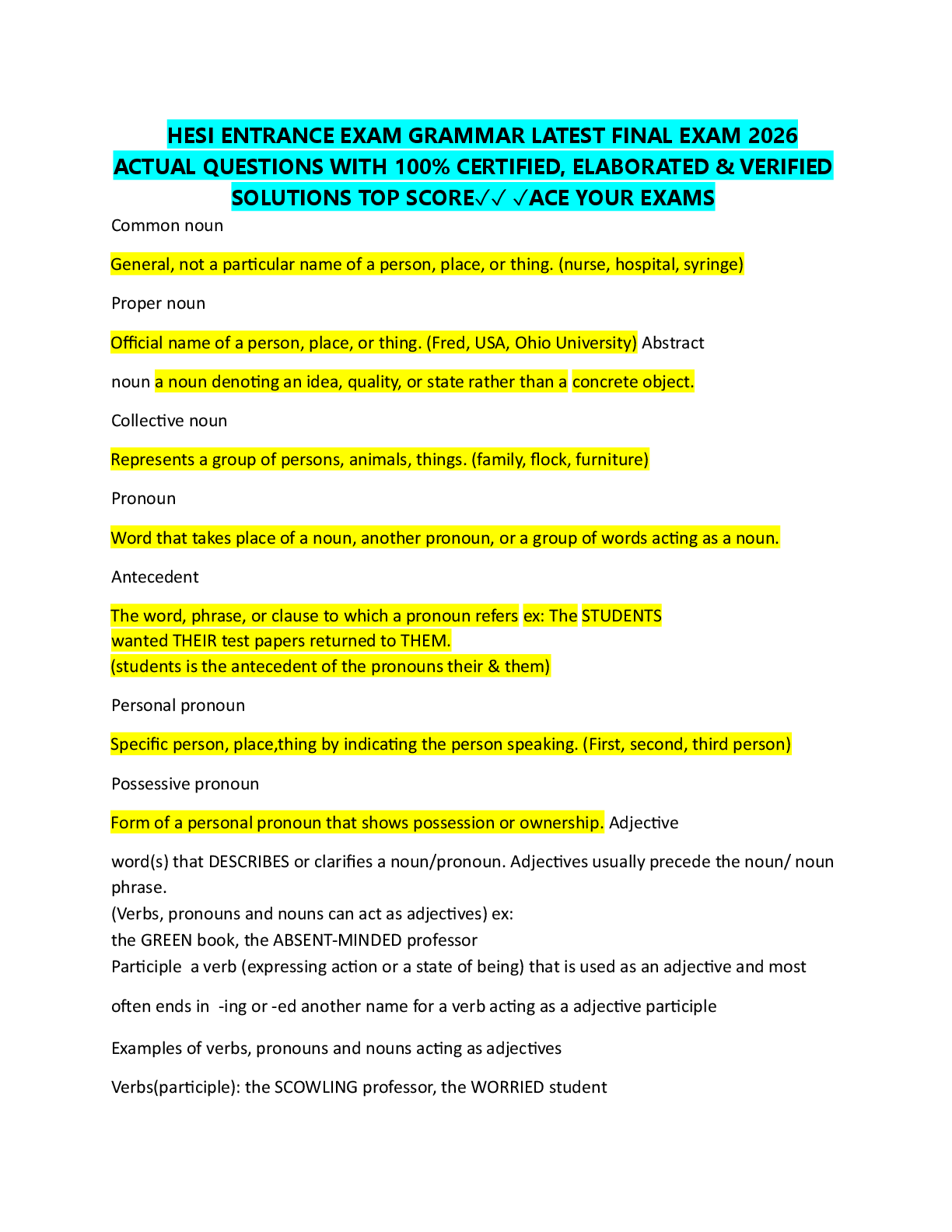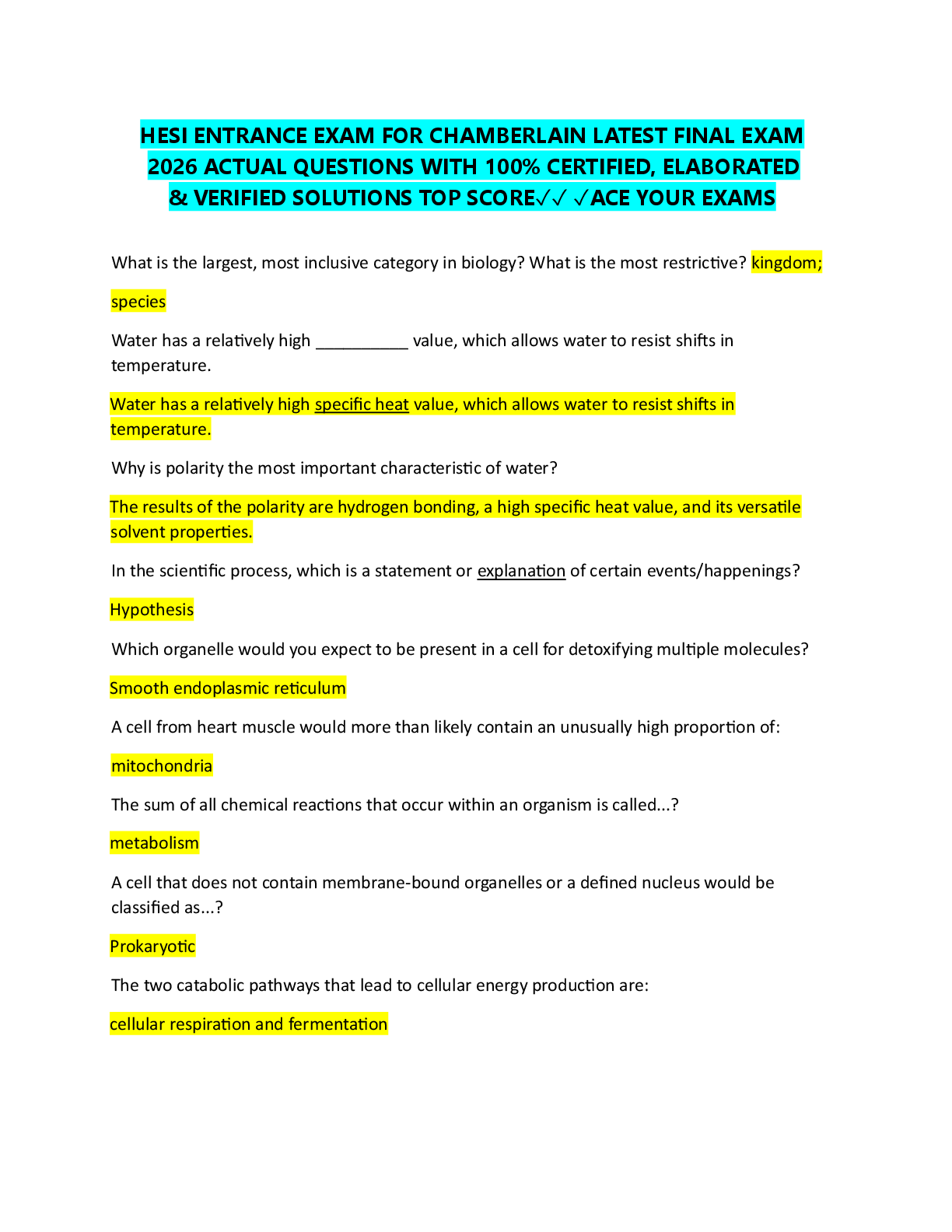HESI EXIT EXAM MODULE 8 WITH RATIONALE. Questions
1.
ID: 8482576270
A nurse notes that the site of a client’s peripheral intravenous (IV) catheter is reddened, warm, painful, and slightly edematous near the insertion
...
HESI EXIT EXAM MODULE 8 WITH RATIONALE. Questions
1.
ID: 8482576270
A nurse notes that the site of a client’s peripheral intravenous (IV) catheter is reddened, warm, painful, and slightly edematous near the insertion point of the catheter. On the basis of this assessment, the nurse first:
A Removes the IV catheter Correct
B Slows the rate of infusion
C Notifies the healthcare provider
D Checks for loose catheter connections
Rationale: Phlebitis is an inflammatory process in the vein. Phlebitis at an IV site may be indicated by client discomfort at the site or by redness, warmth, and swelling in the area of the catheter. The IV catheter should be removed and a new IV line inserted at a different site. Slowing the rate of infusion and checking for loose catheter connections are not correct responses. The healthcare provider would be notified if phlebitis were to occur, but this is not the initial action.
Test-Taking Strategy: Use the process of elimination, focusing on the data in the question. Eliminate slowing the rate of infusion and checking the connection, because they are comparable or alike in that they indicate continuation of IV therapy. Although the healthcare provider would be notified of this occurrence, the word “first” should direct you to select the option of removing the IV catheter. Review the signs of phlebitis and the actions to be taken when it occurs if you had difficulty with this question.
Level of Cognitive Ability: Applying
Client Needs: Physiological Integrity
Integrated Process: Nursing Process/Implementation
Content Area: Intravenous Therapy
Reference: Ignatavicius, D., & Workman, M. (2010). Medical-surgical nursing: Patient-centered collaborative care (6th ed., p. 227). St. Louis: Saunders. Awarded 1.0 points out of 1.0 possible points.
2.
ID: 8482578714
A nurse hangs a 500-mL bag of intravenous (IV) fluid for an assigned client. One hour later the client complains of chest tightness, is dyspneic and apprehensive, and has an irregular pulse. The IV bag has 100 mL remaining. Which of the following actions should the nurse take first?
A Removing the IV
B Sitting the client up in bed
C Shutting off the IV infusion Correct
D Slowing the rate of infusion
Rationale: The client’s symptoms are indicative of speed shock, which results from the rapid infusion of drugs or a bolus infusion. In this case, the nurse would note that 400 mL has infused over 60 minutes. The first action on the part of the nurse is shutting off the IV infusion. Other actions may follow in rapid sequence: The nurse may elevate the head of the bed to aid the client’s breathing and then immediately notify the healthcare provider. Slowing the infusion rate is inappropriate because the client will continue to receive fluid. The IV does not need to be removed. It may be needed to manage the complication.
Test-Taking Strategy: Use the process of elimination, focusing on the data in the question
[Show More]




.png)






.png)






